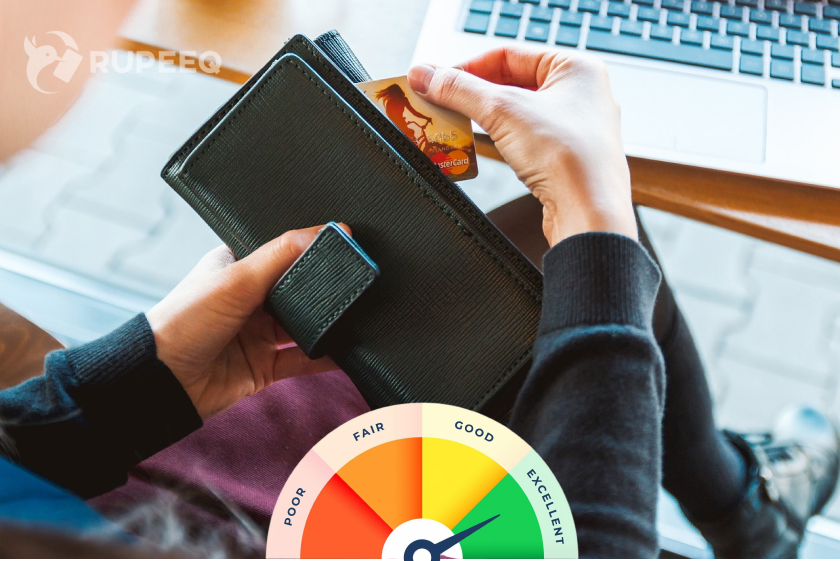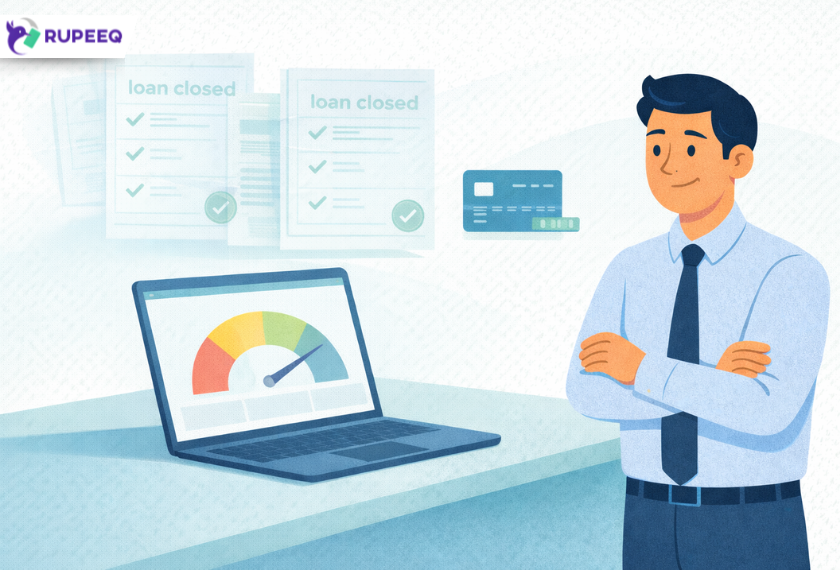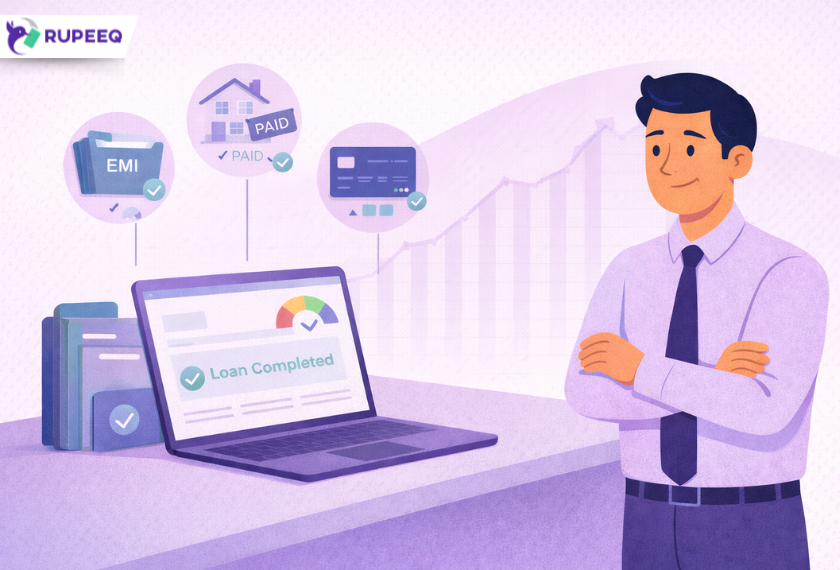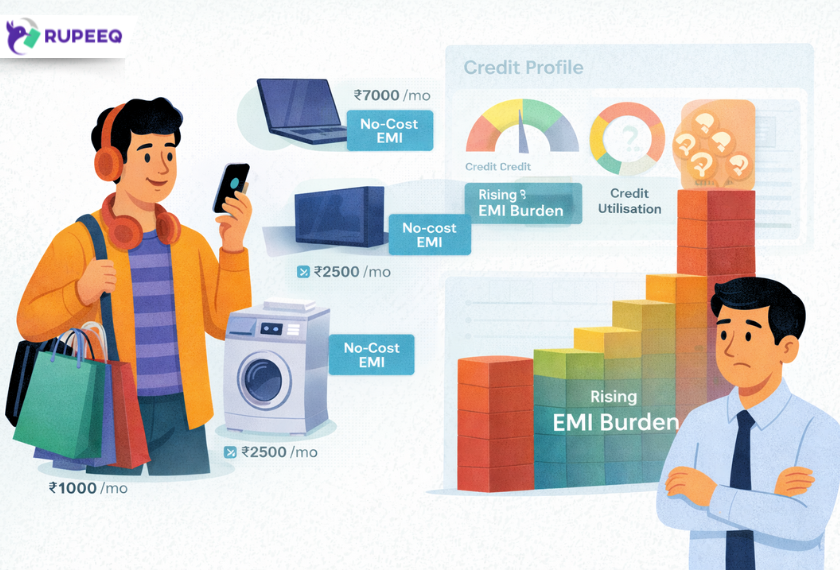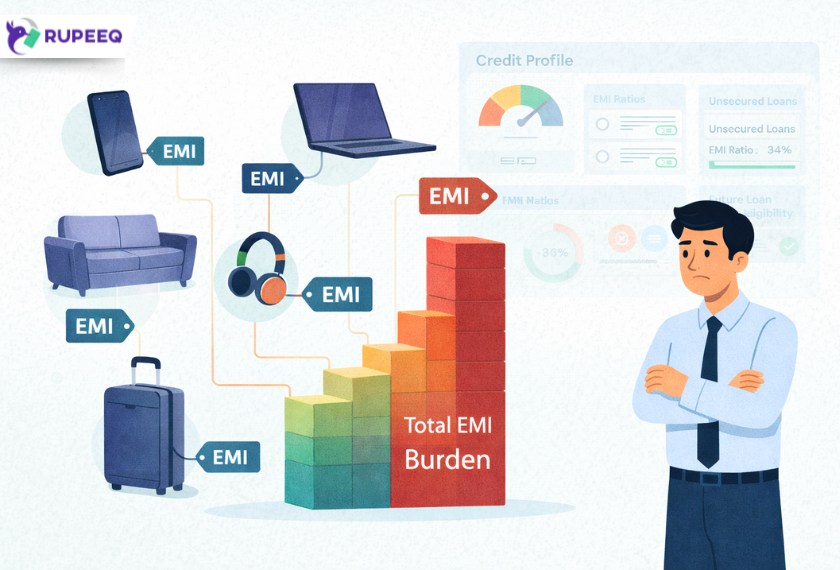Timely payments are one of the most critical factors in maintaining a healthy credit score. Missing payments, even by a few days, can significantly impact your financial health and creditworthiness. Whether it’s a credit card bill, personal loan EMI, or any other financial obligation, late payments can have long-term consequences.
In this blog, we’ll explore how late payments impact credit score, the penalties involved, and how you can avoid them to safeguard your financial future.
How Credit Bureaus Track Late Payments
Credit bureaus such as CIBIL, Experian, Equifax, and CRIF High Mark collect and maintain your credit history, including any missed or delayed payments. When a financial institution reports a late payment to the credit bureau, it gets recorded in your credit report, potentially leading to a decline in your credit score.
Lenders categorize late payments based on the number of days overdue:
- 30 Days Late: Mild impact but can lower the score.
- 60 Days Late: Moderate impact, with lenders considering you a higher risk.
- 90+ Days Late: Severe impact; accounts may be classified as defaulted, leading to legal action.
RupeeQ Tip: Even a one-day delay can affect your credit score, so always pay on time or set up automatic payments.
How Late Payments Affect Your Credit Score
Immediate Drop in Credit Score
Even a single late payment can cause a significant drop in your credit score, especially if you previously had a good credit history.
Example:
Rohit had a credit score of 780, but after missing his credit card payment by 60 days, his score dropped to 690.
Impact:
- A single 30-day late payment can lower your score by 50 points.
- The higher your initial score, the more significant the impact.
Increased Interest Rates
Late payments indicate a higher risk to lenders, which may result in increased interest rates for future loans or credit card balances.
Example:
Neha applied for a personal loan, but due to previous late payments, the lender offered an interest rate of 16% instead of 11%.
Negative Mark on Credit Report
Late payments stay on your credit report for up to seven years, affecting your ability to obtain new credit in the future.
What lenders see:
- Any history of late payments recorded.
- The frequency and severity of missed payments.
- Whether the account was eventually settled or written off.
Higher Loan Rejection Chances
If your credit report shows a pattern of late payments, lenders may reject your future loan or credit card applications due to the perceived risk.
Example:
Amit’s home loan application was rejected because his credit report showed multiple delayed credit card payments over the past year.
Impact on Credit Card Limits
Credit card companies may lower your credit limit if they observe frequent late payments, which in turn increases your credit utilization ratio and further lowers your score.
Example:
Raj’s credit limit was reduced from ₹2 Lakhs to ₹1 Lakh after multiple late payments, making it harder for him to manage expenses.
How to Avoid Late Payments
Avoiding late payments is crucial for maintaining a healthy credit score. Here are some practical tips to help you stay on top of your financial obligations:
Set Up Auto-Payments
Enable automatic payments for credit card bills and loan EMIs to ensure timely payments every month.
Create a Budget and Payment Schedule
Track your income and expenses to allocate funds efficiently for your debt payments.
Example:
Simran maintains a monthly budget, ensuring she always has enough for her loan EMIs.
Pay at Least the Minimum Due
If you can’t pay the full amount, ensure you pay at least the minimum due to avoid negative reporting.
Example:
Kunal, a salaried individual, was facing financial difficulty, but by paying the minimum due, he avoided damaging his credit score.
Set Payment Reminders
Use mobile banking apps or calendar alerts to receive reminders a few days before the due date.
Avoid Over-Borrowing
Taking on more debt than you can handle can lead to late payments. Borrow only what you can comfortably repay.
Example:
You can reduce your spending on luxury items to ensure you could meet your monthly financial obligations.
What to Do If You’ve Already Missed a Payment?
If you’ve missed a payment, take immediate action to minimize the damage to your credit score:
Make the Payment as Soon as Possible: Even late payments are better than missed payments.
Contact Your Lender: Negotiate a payment plan or request a waiver for late fees.
Monitor Your Credit Report: Regularly check your report to ensure the payment reflects accurately after you’ve settled it.
RupeeQ Tip: Check your credit score with RupeeQ to track how late payments are affecting your credit health.
How Long Do Late Payments Affect My Credit Score?
In case you are wondering about Late Payments affecting your credit score then here’s the verdict – Late payments can remain on your credit report for up to seven years. However, their impact diminishes over time if you maintain a good payment record going forward.
Conclusion on Late Payments Affecting Credit Score
Late payments can have serious consequences for your credit score and overall financial health. They not only reduce your score but also make borrowing more expensive and challenging in the future. By taking proactive steps to manage payments on time, you can protect your creditworthiness and enjoy better financial opportunities.

